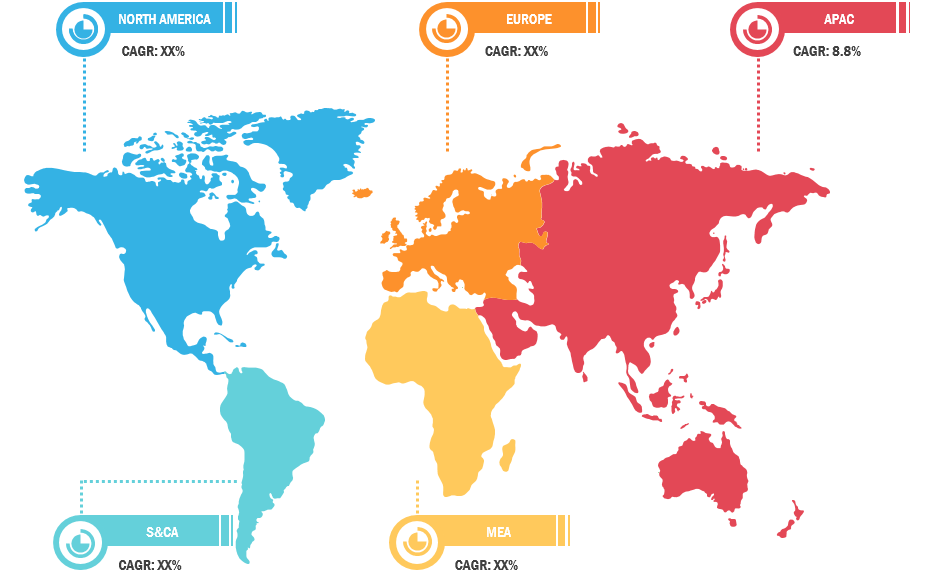A warehouse management system can be defined as a software program that is designed and developed to facilitate the ease of real-time tracking of the location of the goods within a warehouse. This software provides an enhanced potential for handling operations at a warehouse or distribution centre. Its critical capabilities comprise stock locating, order receiving, inventory management, order picking, task interleaving, cycle counting, order allocation, labour management, packing, replenishment, and shipping. Over the past couple of years, the warehouse management system market has witnessed tremendous transformation in terms of handling complicated warehouse infrastructures and its total cost of ownership. With the implementation of cloud-based WMS solutions and services, the total cost of ownership has reduced remarkably.
SAP SE; Microsoft Corporation; Oracle Corporation; IBM Corporation; and Epicor Software Corporation –Prominent Market Participants in Warehouse Management System Market
The COVID-19 outbreak significantly affected most industries across the globe. While few industries experienced a contraction in their productions and businesses, others faced severe outcomes such as the shutdown of businesses and movement restrictions. For instance, manufacturing, automotive, electricals and electronics, and construction industries had the most reductions, and on the other hand, healthcare and e-commerce businesses had a surge in demand. The implementation of lockdowns, social distancing, and various other safety measures in response to the pandemic led consumers to pursue online purchasing. The need for warehousing increased due to the rising trend of online purchasing, and several multinational companies set up new warehouses across numerous countries to accommodate this surge in demand. As COVID-19 subsides, the manufacturers continue to operate with a shortage of reliable warehouse labor. In addition, there is a massive labor reliability and warehouse operators are turning to WMS labor management/resource management solutions. There is growing need for WMS solutions to assist with employee engagement, labor productivity, and the identification of more creative ways to increase warehouse performance. Moreover, several companies are turning to automation and robotics to expand warehouse productivity. Also, WMS providers that support automation integration and orchestration largely benefit from the ability to manage warehouse labor and automation capabilities in concert.
The top five companies in the warehouse management system market are SAP SE; Microsoft Corporation; Oracle Corporation; IBM Corporation; and Epicor Software Corporation. The above listing of key players is derived by considering multiple factors such as overall market insights, dynamic trends, revenue, current general aviation portfolio, new product launches, market initiatives, investment in technology up-gradation, mergers & acquisitions, and other joint activities. A few of the important market initiatives and product developments from the industry are mentioned below:
| Year | News | Region |
| 2022 | Bata India evaluated a variety of on-premises solutions and realized that a cloud-based environment would ensure maximum availability, improve accuracy, and boost customer satisfaction. Bata India chose Oracle Warehouse Management, part of the Oracle Cloud SCM suite of applications, to transform its warehousing operations. The company recognized Oracle’s commitment to helping its customers gain exciting new opportunities and increase asset utilization. | North America |
| 2021 | Softeon, a top global provider of WMS, Warehouse Execution Systems (WES), Distributed Order Management (DOM), and other supply chain software solutions was the second-ranked WMS provider in the Use Case for Level 4 Warehouse Operations, based on the Gartner warehouse stratification model. Softeon was also the third-ranked WMS provider for Level 3 and Level 5 warehouses. Level 5 represents the most complex of warehouse operations. | North America |



